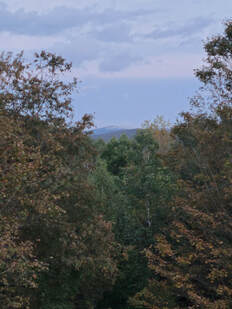 As the days are getting shorter and the weather cooler, I’m increasingly aware of the changes I’ve had to make living in my current home. My partner built a very cool house that reminds me, and many others, of a treehouse. It looks like a big barn with a wooden silo attached. With the windows wide open, even now in the cooler weather, and our living space being up on the second and third floors, it feels like I’m living in the trees. I love it! The house is off-the-grid and powered by solar energy with a woodstove and a couple of small propane heaters. The large windows face south, and the outside walls were built with six-inch thick pre-insulated panels. We often don’t even need to start a fire until the afternoon during the winter. We actually use very little electricity. The house is set up for a 12-volt system with a converter for appliances, computers, etcetera, including the music studio equipment. Our refrigerator and pump are 12-volts as is all of the built-in lighting. That said, we do sometimes have to run a generator on cloudy days or in the winter, when we get less sunlight even on sunny days. I’ve had to learn to shop for food differently because our refrigerator is smaller than I was used to and sometimes shuts off, if the power is too low. We don’t have a washer or dryer, so we make trips to the laudromat. In the winter, I often can’t use my desktop and have learned to use my phone and iPad more often. I wear layers when it’s cold and only use my blender or waffle iron on sunny days. We only light the rooms we are in at the time, and I often use battery powered lights. Is it difficult sometimes? Yes, it is. But it’s worth it. I love living like this. And, I adjusted to it quicker than I expected. In all fairness, I didn't expect that it would be much different, but it is. Recently, a neighbor gave us seven solar panels because he had just upgraded his system and no longer needed them. This is going to make a huge difference to us. In redoing the deck up on the roof, J. built a rack for these new panels. We’re just waiting for the new charge controller to arrive, and he will wire them to the system in time for the darker days. I’ll have to wait and see how much of a difference it will make, but any difference is an improvement. It probably means that I can use my computer more often in the winter and on cloudy or rainy days. It probably means that the refrigerator will run consistently, and we’ll use the generator much less. I already feel as though I live in paradise, living the life I never even imagined was possible. This will feel almost decadent.
In the past seven years, I’ve gone from struggling financially just to stay afloat to being able to invest in myself in ways I thought were impossible. I run a successful business and am moving forward with my music. I have access to a recording studio, video production and an outdoor stage for events. I have a supportive partner who is not in competition with me and who wants to help out in whatever ways he can. My children are all independent and doing well. It’s the first time in my life that I don’t feel responsible for anyone else or worry about their well-being. I certainly care deeply for my children and grandchildren and will continue to be there for them when needed, but I no longer feel immersed in their various dramas. I don’t feel as though I have to fix anything, and it is such a relief. I have lived here almost seven years now and look forward to each year ahead. I couldn’t ask for a better, more peaceful and serene environment. It has stimulated my creativity and nourished my soul. Last night we spent time on the finished deck, looking out over the tops of the trees as the sun was setting. The solar lights in the yard started blinking on, the evening start appeared, and all we could hear was the sounds of nature all around us. Then we walked down to the outdoor stage with its solar lights all ablaze, and I counted my blessings as I watched the stars peeking out of the darkened sky above us. Life is good.
0 Comments
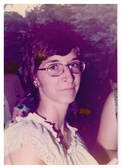 When I was nine years old, I was offered music lessons at school. I chose the violin. My parents borrowed one from a friend. It was a nice instrument but was a full-sized violin and a little too big for me. I didn’t care. I knew I loved music more than anything and was anxious to learn to play it. Unfortunately, the violin is a difficult instrument to play well at first, and it squeaked and squealed all the time. I tried playing it softer, but that only made it worse. My parents had no patience for it, so they sent me into the dark, dank, dirty, dingy basement to practice. In spite of that, I still practiced every day. Then the teasing started. My dad bordered on cruel with his teasing. He had learned the art from his family and practiced it regularly on me and my brother. My brother learned it from my dad and joined in. Finally, it became too much for me, so I quit the lessons and returned the violin. A few months later, I overheard my parents talking about a piano they had been offered. It would cost them fifty dollars if they moved it themselves. I ran in the room and literally got down on my knees, begging them to buy it. Of course, they reminded me that I had tried one instrument already and quit. I tried to explain that the teasing had caused me to quit, but that only made Dad angry. I reminded them tearfully that I had practiced every day in that horrible basement until the day I quit and promised that I would also practice the piano every day. Dad agreed to go get the piano if I agreed to practice at least an hour a day, which I did. Those practices were sometimes torturous, but I stuck with it. Dad brought out his photography timer that made a loud ticking sound and clanged obnoxiously when the hour was up. It rarely ticked in the right tempo and competed with the metronome, but I learned to tune it out and keep my own rhythm. Most days, I practiced the required hour then kept at it, sometimes continuing my practice and sometimes playing my own music. I quickly noticed that when I was at the piano everyone left me alone, so it became my second sanctuary. I rarely play the piano for fun anymore because it has too much baggage, but I often use it as a tool. I managed to keep that original piano, in spite of my parents trying to get rid of it multiple times, though I recently gave it to my son. Dad wanted to be involved in my lessons, so he often sat with me during the practice hour criticizing and correcting me. Then, I would go to my lesson where the teacher explained that I had been doing it wrong. Dad didn’t believe me, so I insisted that he go with me to a couple of the lessons. Once again, this made him angry and made my life harder, so I practiced for an hour on my own, while he was at work, playing the way the teacher had instructed me then practiced another hour with Dad. As frustrating and confusing as it all was, I think it made me a better musician in the long run. I have a great sense of rhythm that I attribute to practicing with competing clicking sounds. I also can hear multiple parts in my head at the same time. For example, when I’m creating harmonies for a song, I hear all of the parts together. I can even sing rounds in my head hearing all of the parts simultaneously. I used to think that everyone could do that, but I’ve since learned that’s not necessarily true. I spent my early life trying as hard as I could to follow the rules and not make waves. Mistakes were dangerous in our home. Dad was a firm believer in corporal punishment. He took his leather belt to me at least three or four times a week. He also tormented me and my brother, constantly teasing, criticizing and belittling us. Neither of us ever did anything right. He was fond of that game of hitting you and saying with a satisfied smirk, “That was for nothing, now go do something.” He also loved to pull me into his lap then, when I got comfortable and let my guard down, he would rub his thumb on the inside of his Planter’s Peanut can and smear the grease all over the front of my glasses. He never questioned Mom who I suspect was bi-polar or had some other mental health issue. She would often change moods like flipping a light switch, and she lived in a different reality than the rest of us. Most times, I was punished for something I didn’t even know I had done. Or maybe the rules had suddenly changed without any notice. When she decided I had done something wrong, I was sent to my room to wait for Dad. Sometimes I waited for hours, knowing that I would get the belt and having no idea what it was for. I grew up believing that I was crazy because my mom certainly couldn’t be. She was my mom. She had to be right. It wasn’t until I was an adult and had witnesses to her changing reality that I realized it hadn’t been me. Until then, I lived as though I was walking on eggshells, trying not to be noticed, while knowing that violence could erupt at any time. My high school days were filled with bullying and abuse. I had been diagnosed with scoliosis the summer before my freshman year and entered a brand-new school wearing a steel and leather brace that stretched from my chin to just below my hips. It was large, uncomfortable and obtrusive. After having spent my first eight years of school in public school, this new Catholic school with all of its restrictions filled with snobby kids that I didn’t know was a nightmare for me. The bullying was cruel and relentless. One boy a year ahead of me climbed on the school roof with a gun and shot randomly before finally killing himself. Another boy committed suicide at home because of the bullying. I became anorexic and was carving designs into my forearms with straight pins. The only thing that got me through that time was music. I stuck with those lessons through high school and also took classical voice. Unfortunately, the high school that had no music or art classes until my senior year, but that didn’t stop me. Those two subjects, as well as writing, were the things I excelled at and truly loved. They were saving my life. When it was time to look at colleges, my guidance counselor told me that I had to choose only one of those subjects, so I chose my first love music and was accepted, in spite of my failing grades, into two music schools. One was Hart School of Music in Hartford, Connecticut, and the other was Seton Hill College in Western Pennsylvania. Hart had offered me a scholarship and wanted me in their music education department, but I had no interest in being a teacher. I wanted to be a performer. I had finished the music entrance exam before everyone else and had continued on to the education section just to pass the time and got a perfect score. My parents pushed for that school assuring me that I could come home every weekend. That was the last thing I wanted to do. My family was dysfunctional and violent. My mother tried to control my every thought. Believe it or not, she chose the clothes I wore every day until I moved out. Dad’s teasing got worse, and during the years that I wore the back brace, he focused on that and my physical appearance. I wanted to get as far away from home as I could and decided, against everyone’s advice, to go to Seton Hill where I was also given a scholarship. I won’t go into all of the details of why, but I failed miserably the first semester, had a mental breakdown and was sent home. It had been the first time in my life that I made my own decisions, but it felt like I had been thrown to the lions. I hadn’t experienced any of the things that normal kids go through in high school. I’d had no relationships of any kind with the opposite sex. I’d never held hands with a boy or even really talked to them much, and I was afraid of my own shadow. Now I was in a whole new world and didn’t handle it well at all. When I came home, my parents were angry. They found me a job at a bank and set me up with a therapist who I couldn’t stand. The good news was that once I had a job, I had my own money and was able to start living my own life. I started meeting people and started learning how to socialize. I became friends with a woman my age who helped me invent things to tell my therapist. We came up with dreams and fantasies, changing these over time to make it look like I was recovering. What really helped me recover was having a friend and being able to make my own decisions. I went clothes shopping with a friend for the first time, took the train into New York City to go to concerts and just cruise around the big city. I reconnected with a couple of old friends from Junior High School and eventually got my own apartment that I shared with a roommate. I still struggled and made some very bad decisions, but they were my decisions. I was not being ruled with an iron fist. Looking back on it, I think it’s a miracle that I survived. Between my family’s abuse and the abuse that I suffered in high school, it was no wonder that I turned to sex, drugs and alcohol. But I did survive, and everything from my past has led me to the present and a full and fulfilled life.  The first house I remember living in was on Elmer Street in Springdale, Connecticut. Springdale is a section of the larger city of Stamford which at the time was a small bedroom community. It’s about an hour from New York City, and the New Haven train line ran commuter trains regularly. Dad worked right in town, unlike so many other dads, so he was often around and involved. Mom worked part-time as a nurse, but my brother and I always had one or the other parent around. If Mom worked nights, Dad would make sure he came home in time to take over. When we got to be school age, Mom started getting jobs during our school hours. We grew up in a neighborhood with gangs of kids running around. When not in school, we left after breakfast to play, came back for lunch and again at dinnertime. In the summer, we could stay out for a while after dinner too. We were all free-range kids back then. I was very shy and afraid even of my own shadow. It was always hard work for me to cultivate relationships. It’s a skill that I’ve had to learn over the years. Mom was great at it. She befriended everyone regardless of their age, gender, orientation, ethnicity or position in life. Whoever you were, she wanted to know you. She was friendly and fun and usually the life of the party. I was more like Dad, who preferred to stay in the background quietly observing everything and enjoying Mom’s antics. They played with us outdoors with Mom teaching us how to double-dutch jump rope. Dad hung swings and rope to climb and swing on. They often played hopscotch or a game they called “Frozen Ice.” It was a race where you had vinyl sheeting cut into random shapes that you’d lay down on the ground, one at a time, putting one foot down then tossing the next and putting your other foot down and so on to the finish line. It was a race so you were supposed to go as fast as you could. All the kids loved watching Mom and Dad race each other bumping the other one to slow them down. Mom even insisted on trying out a kid's new go-cart and got stuck in it. She couldn't reach the brake and couldn't take her foot off the accelerator, so she rode around until it ran out of gas with its owner running after her yelling at her to stop. The whole neighborhood was in an uproar so Dad finally took us inside and closed all of the drapes. Dad was also always good at showing us how not to do things. He was such a good sport but clumsy. I guess I also inherited that from him. One time he wanted to show me and my brother how to swing safely on a rope swing he had just hung in a big old oak tree. The tree was on the edge of a rise in the yard that Mom had terraced to help prevent erosion, which was a big problem. Dad explained that we would swing out from the side of the tree, swinging out over the yard and giving a big enough push to make it all the way around without crashing into the tree. Then he demonstrated. After he picked himself up off the ground, he turned to us and said, “That’s how not to do it. Now you try.” And we did, both successfully. We often learned safety lessons that way. The Elmer Street house was a wonderful neighborhood but a weird house to live in. We lived in half of the large house. The other half was uninhabited and furnished with covers over everything. There were double glass doors with heavy curtains that separated that side from us. Sometimes I would peer through the tiny gaps in the curtains and wonder about it all. It was mysterious, and I was curious. I asked Mom but she either didn’t know or didn’t want to tell me. Every once in a while, Mrs. Fromm would come to visit the house. I have a vague feeling about her and can almost remember what she looks like, but not quite. She was as much of a mystery as the house, and I was too timid to even look up much. I used to make up stories about what must have happened. It had to be something tragic that she couldn’t face. That’s why everything was covered up and gathering years and years of dust. My bedroom was a dead-end in the upstairs. It was off my parents’ room. I liked it because my brother had no excuse to go in. There were other rooms upstairs. Our bedrooms were on one side of the stairs, and there was a hallway on the other side with rooms off of the hallway. There was one off of my bedroom that was behind a locked door. I peeked through the keyhole a few times, but it was creepy. At one point I stuffed something into the keyhole so that nothing could peek in at me. The window in my room was a dormer. Most of the time I loved being in my room, but on stormy nights when lightning flashed and the trees outside cast strange shadows on the walls, I would start to think about that closed off room. Also in that house was a large screened-in side porch. The yard on that side wasn’t very exciting. From what I remember, it was mostly shaded and damp. We never played there. But the other side had a great yard. There was an ironwood tree. It was a perfect climbing tree. The branches were strong and spaced out just right. There was one closest to the ground that grew horizontally for a while then grew up and back out again. It was our “horse.” It was long enough that it would bounce but even a grownup could sit on it safely. I loved that tree. I often took a bunch of books up to the top branches and read for hours. I liked being away from everyone. As I said earlier, socializing was hard work for me. I was also scared a lot, so being up in the tree was ideal. I was safe and could see trouble coming before it reached me. The rest of the yard was large and sunny with a mulberry tree down in the far corner. We picked mulberries every summer and grapes every fall. Mom made jelly from the grapes and from red currants that she got from a friend. The neighborhood was great. When we got old enough to go to school, it was an easy walk. There was a playground and a library next door to the elementary school. There was also a summer day camp at the playground that you could just drop in when you wanted. Halfway to the school was an old fenced in church lot. It was blacktopped so there was roller skating there and sometimes a church fair. A little past the school was Bill and Fred’s. It was kind of an early convenience store. It was a smoke shop, soda counter and candy store. We all went there, when we were old enough to go that far, to buy penny candy. We bought wax lips, wax soda bottles filled with some kind of sweet syrup, candy necklaces, candy dots on long sheets of paper and atomic fireballs. Those were my favorite. Bill and Fred were too older men who smoked cigars in the store. They were nice enough but not overly friendly which was fine with me. It always felt like I was doing something elicit when I went there. Maybe it wasn’t me doing it. Maybe I just sensed something off. Stamford was a very corrupt town. There was a thriving underworld that was quiet and kept to itself for the most part. But it was there, nonetheless.
School was a sudden disruption to my life. I liked being at home. I already knew how to read before entering kindergarten. Mom and Dad’s friends were all educated people. Dad was a newspaperman. He covered current events and the Republican side of politics. Later on, he wrote a weekly column. Mom was a Registered Nurse. I was surrounded by medical professionals, writers, lawyers and politicians. My parents did not believe that children should be seen and not heard. They included us in all of the adult conversations. We were encouraged to think and ask questions. We were also encouraged to voice our opinions but had to be ready for the aggressive counter arguments if we had different beliefs. Mom taught me science related things. We did experiments, gardened, identified birds, insects and plants. When I started school, I was on my own without a safety net. I had no tree to climb when I felt overwhelmed. There were all of these kids I didn’t know. No one from our little neighborhood gang was in my class. I was afraid, and I was bored to tears. I have a vague memory of having a nice teacher in kindergarten, but I made no friends. I don’t think I had a school friend until fourth grade. I spent most of my time working on my invisibility cloak and daydreaming. I hated school. For me, it was a wasted six hours a day. I could have spent that time reading and learning something of value. I don’t think it was the fault of my teachers. I think it was my own social anxiety and the fact that my own learning was way ahead of the curriculum. With my social issues, it would have been a disaster to move me ahead into a higher grade. I was already musical when I was born. My parents loved to tell me that I sang before I spoke. They knew I would be a musician. I was singing sentences before I actually spoke words. I could sing a round by the time I was two and was soon singing descants and harmonies. Dad sang all the time. He had a song for everything. He was a frustrated musician. By that I mean that he loved music and wanted to play it but never seemed to pull it off. When he was a child, his parents, having paid for music lessons for their first three children, stopped providing them for Dad and his younger brother. But he didn’t give up. He was in musicals and chorales in high school and college, but then he didn’t pursue it. He bought himself a guitar for five dollars from the Red Cross when he was in the Navy and knew a few chords. He could also play a little on a saxophone that he owned and on the ukulele. He became a young father and main breadwinner with no time to take music seriously, but he still loved it and surrounded himself and us with it. When he wasn’t singing, he was playing records. He had mostly classical, jazz, blues and big band albums. Many of his friends played music, though. One of them, Sterns Woodman, could play any song on any instrument by ear. All you had to do was sing it to him. I was in awe of him, and there were others. I was so blessed to have grown up in that music-filled environment. I just had my 68th birthday and have been looking back at my life and family history. The things we inherit are unpredictable. We often inherit health issues, as I have. But we also inherit behaviors and beliefs. Sometimes we can overcome those, but some of us get caught up in it all. I found the only way for me to avoid the disfunction and abuse in my own family was to leave home and physically distance myself from my already emotionally distanced family. Now that my original online memoir project is finished, I'm working on putting the book together and realized that I needed to start looking at my early years. I'm glad I put it off for last. It was too difficult to start there, but I think I have a different perspective now and can write it fairly. At least I hope so. My parents were madly in love with each other. They were always physically affectionate with each other. Sometimes Mom sat on Dad’s lap, they danced around the kitchen, and you could just feel their love. I used to see the look in my dad’s eyes as he gazed at Mom and knew I wanted that for myself. However, I soon learned to not look anyone in the eye lest they notice you. To this day, I have to make myself look into your eyes and even then, I’m sometimes looking through you. I have very few memories about my childhood. Most of them are memories of stories told to me. I do have a few, though. Some of them are very unpleasant, others are of places we visited or of times I did things without my family, but most of my early life is a blank. I think that may be a good thing. Mom was born to an Irish immigrant mother and an American melting pot father. The story I was told was that Nannie came from Ireland to Ellis Island when she was eighteen where she could then meet up with family. I can’t imagine how a difficult journey that must have been. She left her immediate family behind to start fresh, not knowing when or even if she would see them again. It wasn’t like she could hop on a plane back then. There has been a rumor in the family that she may have been pregnant, but no one ever talked about the past. I know absolutely nothing about my grandmother’s life, but I’m pretty sure I inherited her courage and restless spirit. Although she died when I was around 3, I have vague memories of being around her and of loving her dearly. When I think of her, I feel loved and at peace. Even Mom didn’t know anything about her own mother. It seems that her life in Ireland must have been very unpleasant. I know only a few things about my grandfather on my mother’s side. Mom referred to him as “Pops.” I know that he loved gardening and had what could almost have been a small farm right in a vacant lot in Hempstead, Long Island. I don’t know what he did for a living or if he had any hobbies. The only thing that my mother ever told me was that he became an alcoholic, or maybe he just stopped hiding it, when she was in high school. She said he would come home most nights in the middle of the night and wake her up crying about what a bum he was and telling her he was sorry. She was always worried that she would run into him when out with her friends and never had any friends over to the house. I have a photo of him at Mom and Dad’s wedding, but that’s the only one. I guess Dad insisted on having him in the wedding, but he did get drunk and cause a scene at the reception. Mom had four brothers. Three of them were older, and there was one younger. They all drank and were wild each in their own way. Uncle George was like a bulldog, short and stocky, muscular and strong as a bull. He inherited his dad’s alcoholism and also became addicted to drugs but sobered up eventually and managed to save his family. I had very little contact with him, but he later became one of my fiercest allies. Uncle John was the youngest and married a German woman he met in the war. Uncle Harry was the oldest and was quite a character. He had a different father, and we never heard anything about his dad. Uncle Joe was my favorite. He was a gentle giant and loved me as much as I loved him. After he married Aunt Gloria, I didn’t see as much of him, but he was always in my heart. We didn’t visit Mom’s side of the family as much as Dad’s, and I never understood why. Joe and Gloria lived in Hempstead, Long Island, New York, within walking distance of my dad’s brother and my cousins. So, my cousins and I would often walk over to visit him when we were in town. This usually caused trouble between my parents though, because Mom was resentful of not seeing her brothers often enough and felt guilty about not reaching out when we were on Long Island. I know quite a lot about Dad’s side of the family. They were all French-Canadians who had settled in Fall River, Massachusetts. My grandmother’s family were quite well to do. They all had good well-paying jobs or owned their own businesses. They were also the musical side of the family. Grandma played piano beautifully. One of her brothers played piano and organ for silent movies. Another brother was in vaudeville. She and her siblings were all expected to have music lessons, and they excelled at them. Grandpa’s family were mostly tradesmen. Some of the women worked in the Granite Mill, where there had previously been a fire similar to the one at the Triangle Shirtwaist Factory. One of their brothers lost so many fingers from working at a factory that he could no longer do that work and became a teamster back when they actually ran a team of horses.
We visited with those grandparents often. They lived in Niantic, Connecticut, near New London. Grandma had been repressed by her family and by the nuns who schooled her, and she was mostly unpleasant to be around. She rearranged Mom’s kitchen cabinets when she came to visit because her way was more efficient. She often suffered from severe headaches and needed to take it easy when visiting. We later found out that Grandpa, who was a pharmacist, supplied her with all kinds of remedies for her headaches. A cousin and I found a hidden compartment in the back of her medicine cabinet that had a wide variety of schedule 2 drugs. I guess Grandpa wanted to keep her mellowed out. Grandpa was wonderful. He laughed a lot, wasn’t afraid of playing and getting dirty and was a bit of a joker. He smoked a pipe, and I can still smell that aroma. I found out later that he drank heavily. I guess that might have explained the devil may care attitude, but I adored him. Every morning for breakfast at their house, we would have soft boiled eggs in egg cups. The toast was cut into fingers so that we could dip them in the egg yolk before carefully scooping out the cooked white that was left at the end. My brother and I got very good at scooping it out without damaging the outer shell. Every morning, we would turn the empty shell upside down and offer them to Grandpa as second helpings. Every morning, he would fall for the joke, laughing uproariously when he cracked into that hollow egg. I have so many memories about visits there. Dad’s two sisters also lived nearby, but we only regularly visited with one of them. Aunt Yvette was the outcast of the family. She had married a sailor who was a pretty sleazy guy. He cheated on her and beat her. Dad got into a fist fight with him over it once well before I was born. Aunt Yvette was now divorced, smoked cigarettes, swore and took lovers eventually having three children. I liked her. We even exchanged letters when I was in junior high and high school. I admired her free spirit. She didn’t seem to care what anyone thought. She was living her life on her own terms. Unfortunately, she was abandoned by the men in her life, left to fend for herself, so she was also poverty stricken. She and Dad had never gotten along as kids, so it was easy for him to ignore her. She lived for a while in the apartment that my grandparents rented out. I did see her then for brief visits. As soon as Mom and Dad realized where I was, they carted me away. Aunt Nickie and Dad were very close. Aunt Nickie was a Registered Nurse. She was always playing her guitar and singing. She wrote parodies and other songs as well. She recited poetry and was fun-loving like her dad. But she and her husband Hap fought constantly. I never understood why they were together. They had separate bedrooms and were vicious with each other. In all fairness, most of Dad’s family had inherited a mean streak from my grandmother. They were always demeaning each other. Nobody and nothing were ever good enough. But Nickie also laughed a lot and made us laugh as well. Uncle Hap was a large, loud man. He was a volunteer firefighter and immersed in Little League. The thing I remember most about visiting them, other than the music and having cousins, was Aunt Nickie’s strawberry patch. I don’t know why that’s so vivid, but I can picture it in my mind as I write and can almost taste the sweet flavor of a fresh picked berry. Dad’s younger brother Eddie lived in Missouri, so we rarely saw him. He would come visit Grandma and Grandpa once or twice a year. He was a high school counselor. He was kind of cocky and definitely a know-it-all. He always had some kind of criticism and was full of advice for ways to do things better. He was a bachelor but was an expert on relationships and raising children. He also knew all about housekeeping, cooking, and everything you could possibly think of. I always dreaded his visits and tried to avoid him as much as possible. The visits to that area of Connecticut were often filled with drama. Eddie didn’t get along with Nickie and Hap’s oldest son, who was not that much younger than him, and they often got into a fist fight at family gatherings. There was always at least one fight at family events, sometimes involving Eddie or my older cousins Harold or Raymond. Sometimes it would be with a friend of the family. Even my Uncle Hap would throw a punch or two at times. I quickly learned to see it coming and manage to stay out of the arena. My cousin Sandra always fainted, bringing the fight to a conclusion. Dad was also close to his older brother Lou. He and his wife Marty lived in Hempstead on Long Island where Mom grew up. Lou worked as an engineer at Grumman Aircraft. Marty was an academic, teaching on a college level. They ended up having three children with ages that matched my brother’s and mine. We spent most of our family time with them. We were only an hour’s drive apart. Because it wasn’t a far drive, we’d often go visit on a Saturday and spend the whole day. Then we would convince our parents to let us stay the night if the other set of parents agreed to make the return trip. I was allowed to go by myself for a few weeks in the summer or part of other school vacations. My brother and I, along with our three cousins, formed a pack. As I grew older, I started noticing how much alcohol my parents’ siblings drank when they got together. Every one of them was either an alcoholic or a recovering alcoholic. Mom and Dad mostly drank socially, though they did like to have one cocktail before dinner. Lou and Marty were responsible for my parents meeting. They met at an American Legion meeting. Mom had become a registered nurse and worked in the local hospital. Her friend encouraged her to come to a dance at the Legion Hall. Dad had gone to a two-year college before enlisting in the Navy during World War Two. Upon returning home, he joined the Reserves and went back to school to become a journalist. He got called up and sent to Korea just before he finished his final year. He often stayed with Lou and Marty and went to that same dance. They didn’t really get along very well at first, Mom saying that she hated the Navy, and dad insisting he hated nurses. But Mom gave him her phone number and when he called, due to a lot of encouragement from Lou and Marty, agreed to go with him to Jones Beach where they fell in love. They got married soon after and Dad got a job in Little Falls, New York, where I was conceived, and started his job as a cub reporter and part-time photographer. He eventually landed a better job as a full-time reporter at The Stamford Advocate in Stamford, Connecticut, and Mom got a job at Stamford Hospital. I was born nine months after they were married. I’ve been told that I wouldn’t eat at first. They had to force feed me, and I most often vomited everything back up. But Dad came home religiously every day at lunch to give me my noontime bottle. He would be draped head to toe in sheets but apparently, I always managed to find a spot that wasn't covered, and he would go back to work smelling like a sick baby. I had a few intravenous feedings and eventually figured out how to survive. I think I’ve always been a fighter. Maybe that early time taught me not to give up. Although Mom and Dad had pretty good jobs, the cost of living was more than they could handle, especially with a child. We lived in a tiny apartment at first. The kitchen was so small, they put the refrigerator in a closet. When I came along, my crib went into that closet, too. I was also told that I was found by a neighbor wandering down the busy city sidewalk stark naked when I could barely walk, scooped up and returned to my mom. I guess I was born to be an explorer. After a little while they rented one half of a house in a residential neighborhood. It feels odd having finished the short memoir pieces, at least for now. I feel almost an emptiness, not entirely unpleasant. It just feels as though I’ve lost my direction somewhat. There’s plenty more to write about, and things I omitted from my story. I’ve only hinted at my childhood or occasionally included some flashbacks, but I didn’t start from the beginning. My early years were harder than the later ones and harder to write about. I have very few memories from the years I lived with my birth family, and the ones I do have are mostly unpleasant. Anyway, I’ve previously written short memoir pieces about some of those memories. The CD I released in 2014 had spoken word memoirs recorded, one for each song. Although, I won’t record them this time, maybe it’s time to tell you a little bit about the songs in the new CD. Deep Ellum Blues: I first heard this song played live by The Dead at an acoustic show in Connecticut. It must have been sometime in the late 70s. Paul was a more dedicated Deadhead than I was and insisted on going to every show he could. We didn’t have much money and could usually only afford one or two shows a year. I liked seeing a variety of bands, but I usually deferred to Paul because he was so enthralled with The Dead. That year, he had heard a rumor that they were coming to the East Coast, so he went to a ticket agent to find out. There were no dates announced yet, but the agent promised to let Paul know as soon as any information was released. We waited and waited until finally one day, we got the call. There four tickets available for a show in a small theater in New York City. The agent didn’t know exactly where the seats were, but he insisted they were good ones. He also had two tickets for show in New Haven, Connecticut and didn’t know anything about that show either. He apologized and explained that he wasn’t used to getting rock and roll concert tickets. The New York tickets were pretty expensive for that era, but we took them as well as the two for New Haven. We thought we could easily get rid of the two extras. Boy, were we wrong! No one wanted to buy pricey tickets for mystery seats. We thought we were going to be stuck with them until finally a friend of a friend scooped them up. He was so excited to get these sold-out tickets, he even offered to do all the driving and get us high all night in exchange. Finally, came the day of the show. I had arranged for a sitter to watch our daughter, and Paul had miraculously managed to get the night off from work. Then, late in the afternoon, I got a call from Paul saying that he had to stay late at work and wasn’t going to make the show after all. He was devastated. Our sitter was also a Deadhead, so Paul suggested that I find someone else to watch Jessie and ask Debra if she wanted to come to the show with me. Of course, she jumped at the chance, so I got my mom to keep our daughter overnight. This was a rare occurrence. Mom was not usually interested in babysitting since she still had her own young child at home, but this time she agreed. Just as Debra and I were walking out the door to meet the other couple, Paul raced in. He had pleaded with his boss who finally relented. Poor Debra. We promised her a ticket to the show in New Haven instead. Paul had already agreed to work that night. She was disappointed but happy that she had any ticket, so all was good. We were running late by the time Paul showered and changed. The other couple were getting anxious. We all were. Our driver raced into the city, miraculously avoiding any speeding tickets or other delays. There was no parking anywhere, so he finally flagged down a parking garage attendant, handed him a fifty-dollar bill and asked him to take charge of the car. Then we ran to the theater. We still didn’t know where we would be seated but figured the theater was so small it wouldn’t really matter. We handed our tickets to the usher as the band was just getting on stage tuning up and starting to warm up to the start. As the first notes floated in the air, the usher kept walking us further down the aisle until she stopped at the front row and waved us in. We were almost in the center. What a thrill! I could lean back and put my feet up on the stage. It was a great show that night. A few days later I went to New Haven with Debra. These seats were up in the balcony in a larger venue, but they started out the show with an acoustic set. It’s the only time I’ve heard them do an acoustic set and was also the first time I heard their slow version of Friend of the Devil. I wasn’t a fan of the new version, but the rest of that set and the rest of the show were both great. It was too bad that Paul had missed out on that. He was disappointed that he never did get to see them play acoustically, but he was also thrilled that we’d had those front row, almost center, seats and stayed high on that until the next show. He always said it was worth twice the price. It’s Gonna Be Cold Outside:
I’m turning sixty-eight in a few days. I feel young in spirit but, like so many of us who are aging, my body is starting to betray me. I’ve never been very good at exercising enough. The things I love to do are play music, write, create art and read. Those involve a lot of sitting. I also have a serious back condition that I’ve had for most of my life, ever since I was twelve. It’s almost invisible but causes me quite a bit of discomfort if I’m not careful. I’ve also inherited a few chronic ailments, and stress has taken its toll on me even though most of the stress is gone now. When the pandemic hit in March of 2020, and I lost much of my work, I anticipated that stress would return because of my loss of income. But I was pleasantly surprised. Friends, family and fans were generous and helped out in many ways. I also accepted food from a church group and a food box from the government twice. But mostly, like so many others I was staying at home and wasn’t spending money on gas or on rent for the space I had been using for my classes. I also wasn’t eating out as much, especially those lunches in cafes when I had been between classes and needed to stay in town for hours at a time with nothing to do. I was amazed at how easy it was to be at home. It gave me the chance to reevaluate a lot of things. I thought a lot about my music career and the direction I wanted to go in. I was no longer practicing with a band and was back to playing music by myself the way I wanted it to sound. I started writing more songs. I rearranged old songs and sorted through my piles and piles of song bits that were never completed. I organized my files and organized my life. I also consistently wrote my memoirs. I found that the more I wrote, the more I wanted to write. I realized that I had a lot to say and wanted to say it while I still could. My mother died when she was eighty, my dad at eighty-four. Eighty is only twelve years away for me. Mom was active and healthy until her massive stroke. She only started looking and feeling her age at around sixty. This song is my reflections on aging. It’s not meant to be morose and was not written with regrets in mind. It’s just an acknowledgement that I’m getting older and slowing down a bit, and that’s okay. In 2014, I moved in with my current partner in his off-the-grid solar house, that is heated mostly with wood, in the foothills of the Taconic Mountains on the Rensselaer Plateau. I’ve had to learn a new way of daily living. Our refrigerator is a small RV/Marine refrigerator, so I shop more often, we only use lights when necessary and only in the room that’s occupied, and we only vacuum or use kitchen appliances on sunny days. We have no fans or air conditioning in the summer, and it is sometimes chilly in the house in the late fall, winter and early spring. I’ve learned to let my body acclimate to the weather. I’ve become quite fond of hooded sweaters that keep my head warm. All of these things contributed to my writing of this song in the fall of 2020. The winter was coming with continued isolation and more reflection on my part. I was pulling out my warmer clothes and started wearing my hat indoors before we cranked up the wood stove. I was enjoying telling my stories and, in telling them, remembering more and more each day. I tuned my guitar to an alternate tuning of E-B-E-A-B-E, as I often do for inspiration, and played random chords until the pattern came. Then I put all of those thoughts and experiences into words. I love hearing what other people take away from my songs. As I was writing it, the cold was a metaphor for the uncertainty I was feeling about the future and about my aging. But it can also be a song about facing a harsh winter or maybe something else entirely. I wonder what it all means to you. I have said before that my friends refer to me as a serial monogamist. That is because I am committed and loyal to my partners. However, eventually, when faced with daily emotional and verbal abuse, I come to a breaking point and decide to move on. I left home and moved in with Paul Cavanaugh when I was twenty. I left him and moved in with Dick Kavanaugh when I was forty. Now I was sixty and was leaving again. I managed twenty years in each abusive relationship and was now determined to live alone. I decided to move into a friend’s house. I would be renting a long narrow room, large enough for a single bed, some bookshelves, desk and dresser in a long line against one wall. One friend said it reminded her of a dorm room. I saw it as a landing place where I could regroup and figure out what to do next and where to go from there.
Two days after I went to court, and the day after I announced my moving date, Dick came home in a terrible mood. He started right in yelling at me and throwing things around. I decided that I needed to go out that night and started exploring my options. I have always tried to support other songwriters as much as possible and had a list of people to see. One of them was playing as hour away so I started reaching out to friends to find out if anyone would join me. No one that I spoke to was interested in going out that night, so I went alone. I walked in, took a seat at the bar, and ordered my usual bourbon neat with a slice of lemon. I turned my back to the bar to pay attention to the singer in front of me and noticed a clean-cut looking man also sitting at the bar wearing a jacket and tie with a video camera and recorder between us. I soon struck up a conversation, curious about the recording he was doing. Before too long, I had moved to the seat on the other side of him so as not to disturb the recording, and we spent the entire night talking and enjoying each other’s company. I have to admit, it was an unexpected and pleasurable turn of events. At the end of the night, I introduced myself to the singer-songwriter and complimented him on his beautiful guitar. He handed it to me to try out. I played “Highway In Your Eyes” and tried to hand it back, but he insisted that I show him the runs I play on that song. Then he complimented me, and we chatted a bit longer. As I was leaving, I hugged him then turned to the videographer and stuck out my hand. He looked at it, laughed and said, “What? No hug?” so, I hugged him, too. Then he handed me his business card and asked if he could see me again. It read Joel Patterson, Mountaintop Studios. I hesitated, remembering that I wanted to be single. But I gave him my card as well and agreed to exchange emails. I explained that I was going through an ugly breakup and needed to focus on that and my other family obligations before I could see him. He agreed to wait for two and a half months if we could stay in touch via email. The next day, I told Dick that I had met someone that night and would probably see him again after I had moved. Things were messy enough already, and I didn’t want extra drama. I believed that honesty was the best policy. The next weeks were traumatic and emotional. As I said before, my friends pitched in to help, but there was always the cloud of my former partner always nearby reading in his recliner while we sorted and packed. I reminded him that I had found the house, and he had not wanted to be a part of deciding to move there. He always insisted that it was my house and my decision alone. But he refused to leave the house, stating that it was now his home regardless of how he came to be there. Somehow, he managed to be home whenever I worked at the massive job of cleaning and clearing everything out. The more time went by, the angrier I felt. I knew that I would have a difficult time forgiving him for his treatment of me when my mom was dying and forgiving him this monumental task that was left to me to deal with by myself. I had always remained friends with Paul after our split but wasn’t sure I could that this time around. Although Paul was angry much of the time and was abusive in many ways, he was kind to me in times of turmoil. He cared for me when I was ill, supported me when I faltered and always showed his love for me. This time around, I felt as though I had been a burden. I was sure that Dick was relieved to be rid of me despite the years we’d spent together. Meanwhile, Joel and I emailed each other almost daily. One day, he wrote to tell me that he was recording a show in Schenectady, not far from my house, and wondered if I would meet him for coffee. I was hosting a family birthday party that day and knew I wouldn’t be able to get away. Besides, I had already told him that I was committed to waiting until I moved out to see him. I explained all of this then didn’t hear back from him. I figured he was busy, but when day after day went by with no word, I started to wonder. I finally wrote to him asking what was up. He said that he thought I was writing him off. He was sure that was my subtle way of telling him that I wasn’t interested because he was so close by that day. He didn’t have any idea what my family gatherings were like with over a dozen people of all ages for a day-long celebration with me doing most of the work. As I smoothed things over, I found myself wondering why I felt such a loss when I was determined not to get serious about anyone. But I ignored the warning signs and went back to daily correspondence. May first came fast. I moved into my little room and settled in a bit then let Joel know that I was ready to see him. We arranged to meet at a show by the same singer that had been instrumental in our meeting. Once again, Joel showed up in a jacket and tie. We enjoyed the first set then went out to my car to smoke a joint. One thing led to another, and I finally told him that I thought he should invite me to his house to spend the night. We had been out in the parking lot long past the show’s end. It was now around 3 am. He explained that he loved a distance away, but I didn’t care. I was enthralled with this quirky and wonderful man. I followed him home, making him wait for me as I waited at all of the red lights that he ran. As we drove, I started to wonder what I was doing. I barely knew him and was now following him to his isolated home. As we drove on and on, I felt slightly nervous until we drove past a sign for The Peace Pagoda. During my time teaching at The Free School, I had helped out while it was being built. I knew exactly where I was and how to get home. Very shortly, we went up a long steep dirt road then turned into a dark driveway. When the outside motion detector light came on, I saw what looked like a huge three-story barn. This was his home. I spent a lovely night there and woke up the next morning feeling tired but happy. Joel made me breakfast. He told me that he had been going to see that same singer-songwriter for a few years, doing free videos for him, which he never did. He said it was like a compulsion that he didn’t understand. Now he realized that it was all done so that he would meet me there. That fit right in with my belief that things happen for a reason if we only follow the signs. Then I remembered that it was Mother’s Day, and I had plans to meet my daughter for brunch. I reluctantly left agreeing to see him again soon. We did see each other again the next weekend, and every weekend after that. I kept trying to explain my resolve to be single for the rest of my life and insisted that we had to keep things casual. He just laughed each time, and it did end up being a losing battle. We quickly went from seeing each other every weekend to almost every day. I still insisted on renting the room in Albany, and we alternated back and forth from Petersburg on weekends to Albany during the week when I had to work in town. Then Joel did something for me that changed the tide. I had always wanted a porch swing. When we moved into the farmhouse in Princetown, I finally had a front porch. My kids all pitched in and bought, assembled and installed a porch swing on that porch. I was thrilled and often sat out there enjoying it. Then one day, Dick decided we needed a ceiling fan on the porch and took down not only my swing but also the rafters that supported it, so it never got put back up. When I moved out, I put it in my storage unit. I had to go there to get my sound equipment for a gig when Joel noticed it and asked about it. I tearfully told him the story. It was just one of many things that still stung. He offered to store it in his garage so that it wouldn’t take up so much room in the unit. I declined at first, but he soon talked me into it. The next time I visited his home, I saw my swing installed on a free-standing frame made out of saplings he had cut down in the woods. I stood there and cried. At that moment, I fell deeply in love with this amazing man and knew I was no longer able to keep things casual. After a few more months, I agreed to move in with him and have been happier than I’ve ever been in my life. It is the first time that I have a life free of trauma, though it did take a while to settle down. My son recovered from his breakdown, after many more months of turmoil, and we have gradually and carefully repaired our relationship. Dick Kavanaugh and I did manage to have a tentative friendship, and his cancer eventually ended his life. I am still close to some of his children and grandchildren. There have continued to be many ups and downs within my family, but I navigate them with the backing of a loving and supportive partner. I soon planted flower gardens and brought over my yard decor, a picnic table, chiminea, chairs and benches and children's items for outdoor play. Together, we have planted gardens, marked trails in the woods, and hosted events on our outdoor stage. We've created a peaceful and musical environment for people of all ages. We have had a few struggles in our relationship like any other, but we are able to sail through them without fighting with each other. We make compromises and accept each other for who we are. It’s the first time I have lived without being cautious, without being yelled at or blamed for things. I’m no longer afraid of what each day will bring. And most important of all, I have my life and he has his life. If I want to travel, I do it without him because he likes to stay at home. We have no expectations of each other beyond being kind and loving. In the eight years that we’ve been together, I have traveled to music festivals where I camped for three to four days, Oregon for ten days, South Caroline twice for a week at a time, Maine a few times and gone to China for two weeks without him. I’m always glad to come home, and he’s always glad to have me back. In addition to all of this, he has enabled me to move forward with my music, recording me, making music videos and sometimes running sound for gigs. He is my harshest critic but in a kind and loving way, keeping me on my toes and encouraging me to be the best I can be. When the Highway In Your Eyes CD was nearing completion, he mixed it and recorded a few more songs in his studio. I hired an artist friend to do the cover, but he put it all together. When we were first together, he had me read my memoir pieces aloud to him in the evenings. It was a nice way to get to know each other. I would read a piece, then he would share something from his life. He encouraged me to put some of them together on a second companion CD, so I did, one for each song. In 2014, just after its release, WRPI did a show using both CDs and playing a story then the song that went with it. It was very cool to listen to them in that order, but it seemed to make the most sense to put the music and stories on separate CDs so that you could listen to just one or the other. I spent the first year living with Joel recovering from all of my past trauma. I felt exhausted and unmotivated much of time. He and others encouraged me to just take the time to rest. I spent the second year trying to figure out what was next. By the third year. I was feeling alive again and starting to move forward. Now, I feel as though I am living the life I never even imagined was possible with the “Finest Man.” The night that my mom died, I had a dream that I was in my music room, playing my dulcimer when Mom walked in. She stood and listened then said, “That’s a beautiful tune. I love you, Deb.” I woke up crying then went downstairs and played the tune from my dream. I originally titled it “Margaret’s Waltz” after my mother, but there is already a well-known tune by that name, so I shortened it to “Maggie’s Waltz.” It was a healing dream. My parents had never shown me support for my music, never asking about it and never coming to any shows. After they both passed, I found out that they bragged about me all the time to others. I wish I had known that while they were alive. The next day, I was scheduled to do a Cavanaugh & Kavanaugh gig at a local library. I’ve always believed that the show must go on, and I was still numb from the long ordeal and in shock from her eventual passing. I insisted that we do the show but was reluctant to go to the party we’d been invited to that evening. The show went well, and playing music felt healing. Afterwards I agreed to go to the party where we would do more jamming. However, I hadn’t counted on going with a moody partner who seemed to be going out of his way to try to fight with me. I wasn’t interested in fighting with anyone and tried to go along with his whims until the end of the night when he aggressively insisted on leaving in the middle of my playing a song. At the end of the song, disappointed at leaving because the music felt so good but determined not to engage in drama, I went to say goodbye to our hosts. When I looked around, I saw that Dick was in the middle of the jam. At the end of that tune, I told him I was ready to leave. He loudly and rudely said that he had gotten tired of waiting for me and was now staying. I was furious and embarrassed, so I walked to my daughter’s house and spent the night there. I refused to answer his calls and finally returned a few days later in time to prepare for Mom’s funeral. That was a turning point in our relationship. I wasn’t sure if I could forgive his insensitivities during the past year while I was dealing with such a traumatic event. I’m a very loyal person and don’t give up on relationships easily, but once again I’d had enough. Although I felt as though I no longer loved him, I also recognized that he was dealing with a probably fatal cancer and didn’t want to abandon him. I’d already lost Paul to cancer, though his diagnosis was well after we had split up, and I knew Dick would need support, but things were never the same. We became roommates that shared the same bedroom and continued to play music together. I tried to help him with his health issues, but he soon stopped all of the recommended protocols, including regular testing. Nothing I said could change his mind. It seemed as though he’d given up. Still, I was determined to be there for him. Things did improve slightly over time. My dad passed a year later, and Dick was supportive and kind. I started feeling hopeful that we would get back on track, but the time when my mom was dying still haunted me. Then one day, I came home from a demonstration in Albany, hot and tired. He was in my office using my computer, and I asked him when he thought he would be done since I had work to do. He snapped at me, saying that he would get off when he felt like it. Then he accused me of being selfish and possessive of my computer. I also got angry and, when I did, he jumped up and shoved me into the doorframe, yelling and calling me names. He had often been angry and violent, but it had never before been directed at me. I felt like I was reliving the scene with Paul so many years earlier and snapped. I screamed back and ran out of the house. When I returned, I calmly asked him if he wanted to continue to be with me. He replied, “no.” We started talking about how the break-up would work. He insisted that Tabitha give up her bedroom to him. He already had a room and most often slept in the recliner in the living room, so I suggested that he take that as his room, as well as the smaller room adjacent to it. My office was on the other side of the house, and his section could be closed off to everyone else, but he refused. I was devastated. I had painted Tabitha’s room for her when we moved in with clouds on the ceiling and trees and flowers on the walls. She loved that room and slept and played in there. But there was no changing his mind. I moved as much of her things into my room as I could and shared my double bed with her. I was finished fighting. I’d been fighting my whole life and didn’t have any more energy for it. I knew I had to make a complete break, but he refused to move out of the house.
When I first found the farmhouse, I went to him and asked if he wanted to move there. One of my Music Together moms had offered the house for a reasonable rent. We had always talked about moving to the country, so it seemed ideal. Dick refused to make a decision. He told me that if I wanted to move there, I should decide to do it, and he would then decide if he was going to move with me. I replied that I would need someone to share the rent, but he stood his ground. It was going to be my house. I decided to do it, and he decided to move in with me. I was confused but happy that it worked out. Now, suddenly he was saying that it was his home, and he wasn’t going to leave. Once again, I was confused. I thought it was my house, and he was renting rooms. Finally, I gave in again. I knew that in order to have any peace, I was going to have to find another place to live. Meanwhile, we lived there as roommates. Then in November of that year, his son committed suicide. He was devastated, and I took him back into my bed, moving Tabitha back into her old room. That same year, I had been approached by one of the dads in my music classes and offered a trade. I often do trades with families who couldn’t otherwise afford classes. I believe strongly in making the program available to everyone who wants to do it regardless of their financial ability. He offered to record a CD for me with his remote equipment. This was incredible. I was still writing songs that Cavanaugh & Kavanaugh didn’t perform and was eager for this opportunity to get my original music out in the world. I was feeling done with Cavanaugh & Kavanaugh. I had little input anymore as to what songs we played, and my original songs were usually rejected. I wanted to do more solo gigs again, and this would help. It became my second full-length CD. I called it “Highway In Your Eyes.” Dick and I were getting along again, so I asked him to play guitar on a few songs. I recorded most of my and Dick’s tracks on a day in January the following year at the Cary Institute in Rensselaerville, NY. Meanwhile, my younger son was struggling. I knew he was drinking more than I liked and had been experimenting with some of the newer designer drugs which I knew to be dangerous. He had moved back into our house to go to school for music at the local community college and had finished his first year. He was quite talented but also a bit lazy and had never focused on schooling. He started out his first semester strongly and ended up doing well. Then, his grades faltered. He couldn’t seem to concentrate and didn’t understand some of the courses. He passed, but just barely and got discouraged. He asked for my help which I gave, but he soon became surly and angry with me most of the time. I was worried and suggested that he seek help which only made him even more angry. He had gone on a cross-country trip with his best friend the summer following his first semester, and it was a disaster. He came back worse than ever. He barely got through school that fall and had to repeat a class. I was worried and didn’t know how to help him. He was already an adult, so there wasn’t much I could do. Life was incredibly stressful again. I was having trouble sleeping and couldn’t concentrate on anything. I knew I had to find a place to live but had no energy to even think about it. Neither Dick nor Austin was helping out around the house regardless of the agreements that had been made, and I was burning out fast. We heated the house partially with wood. We’d all agreed that Dick would cut the wood, Austin would split it, and I would stack it, bring it in and keep the stove going. That winter, we were constantly running out of wood. Sometimes Dick would go buy a bag of wood from the convenience store, and I was hauling dead branches out of the woods. We had an electric splitter, so that wasn’t as hard a job as it could have been, but I was left on my own to heat the house. One day, I went up to Austin’s room to ask him to please go out and do wood. He refused, and I got angry. Before long, we were yelling at each other and suddenly I found myself on the floor with his hands around my throat, screaming that was going to kill me. I managed to scream at which point he stopped, looking shocked and stricken. I ran out of the house with my phone and called the State Police. They took my son away as I cried and shook. Then one of them stayed with me while I called Dick to see if he would come home. They said they didn’t want to leave me alone in the house after such a devastating experience. I told Dick what had happened, and he assured me that he would come right home. He was twenty minutes away, so I told the trooper that he could leave. I would be alright for the short time it took for Dick to come home. After three hours, Dick walked in the door. I asked what had taken so long, and once again, I got yelled at for being controlling, as he reminded me that I wasn’t his keeper. I left and walked in the woods for hours, shaking, crying and berating myself for staying with someone who continued to be so insensitive to me in my times of need. The next day, I went to court with a friend and tried to get the judge to mandate counseling. I was told that they only intervene after a second incident, which made no sense at all to me. They wouldn’t even recommend drug counseling. I was urged to get an order of protection for six months, which I did. I went home, shaken and sad. Dick wanted to know why I hadn’t included him in the order and didn’t understand or accept that it had nothing to do with him. I was the one that had been targeted. Our neighbor was there at the time and was able to calm him down. I had to leave the house while Austin came with the same family friend to get his things and move out. He left me a note, and I cried some more. I couldn’t believe that my life was falling apart so traumatically and all at once. I immediately regretted having called the police but also knew it was the right thing to do. Like so many other times, there were friends who were understanding and supportive and others who were judgmental and didn’t seem to understand the strong bond between a mother and her children. The next day, I told Dick that I would be moving out May 1st. That would give me two and a half months to find a place to go. He sneered and asked where I was going. I told him that I didn’t know yet, but I would figure it out. He laughed, sarcastically wished me luck and walked away. I started walking around the house looking at the twenty years of accumulated things from our life together, books, CDs, sheet music and lyric sheets, household items, furniture and more. When I had left Paul, I packed a suitcase and left, coming back over time to take a few things. This time, I knew I had to sort through things and wasn’t looking forward to having to do that together. As it turned out, we didn’t do it together. He refused to do any of the work. He told me to take everything. He wanted nothing. Luckily, my friends came and helped me, taking loads to donate, helping me pack and bag things up for the trash. There is much more to tell about that difficult time, but I will leave you with the image of Dick sitting in his recliner reading or napping while my friends and I sorted through our communal belongings for weeks and weeks, setting aside things that I knew were his or would mean something to him and splitting up our household goods in an effort to be fair and equitable. I have always been thankful for my friends, but never more than during that time while I was forced to deal with a nasty breakup at the same time as what felt like the loss of my son. I never underestimate my friends. They have been my saving grace time and time again. 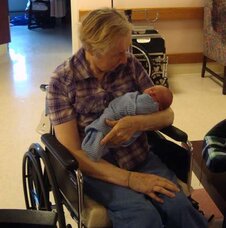 In early 2010, it looked as though life was beginning to settle down a bit, and things were going along fairly smoothly. My older son was expecting his second child and was partnered with a wonderful woman. It looked like they would soon take Tabitha, who I had been raising for him, into their family as well. My daughter and my other son were both working and seemed as though they were on a good track. Because I had lived through so many disasters, I used to say that I thought I’d experienced just about every bad thing there was to deal with, but I no longer say that. It seems as though I jinx it every time. Dick and I were still struggling some, but I attributed that to his having to deal with his cancer and the fact that he was often grumpy even without having to face that. He had wanted to break up with me when he first got his diagnosis. He said he wanted to live alone and not burden anyone with his health issues, but I assured him that I would stay by his side. I guess I didn’t realize how difficult he would make it for me to remain, but I was committed to seeing him through it. Then a new disaster struck. On the day before Easter that year, my parents came to visit us in an old farmhouse we were renting. This was momentous. My parents never approved of my lifestyle. They never approved of most of the choices I’d made throughout my life and rarely, if ever, came to visit. They never came to my shows, whether they were rock, jazz or folk. They also never asked about my music or my career. But that day, they were full of praise for my home. My mom walked around the yard with me, admiring the gardens and making plans to come help me tend them. My dad kept talking about the house he grew up in remarking at how much this place reminded him of it. It was the best visit I’d ever had with them. As they were leaving, Mom told me she was looking forward to coming back and said she loved me. I cried as they left because this was such a turning point in my life. Mom never expressed her love for me and always criticized everything. I felt hopeful. Two days later, I was packing up my music supplies after teaching a class when Dick walked in. I wondered why he was in town. I wasn’t expecting him. He’d come to tell me that my mom had suffered a severe stroke, was not discovered quickly and was now in the Emergency room in critical condition. We rushed over there where she was still unconscious. My dad and siblings were already there and waiting for me. The doctor explained that a large portion of her brain was affected. There was a treatment that could potentially bring her around, but they wouldn’t know how much permanent damage was done for a while. He explained that the treatment was a little dangerous and would cause her to be agitated, but if we could keep her still, she would have a good chance of surviving it. We told him to go ahead, and I spent the next hour or so singing lullabies to her to try to keep her calm as the medicine worked its magic. The music also worked its magic. As long as I sang, she lay still. When I stopped, she started twitching and moaning. After a little while, I couldn’t sing another note. I needed to get something to eat and take a break. I had worked until 6:30 pm without having had any dinner. It was now quite late, and I was getting lightheaded. I instructed my brother to continue singing while I was gone. He is not a singer and was uncomfortable doing it, but he did it anyway because we could all see how it helped. After days in a coma, Mom finally woke up. The damage was horrific. She couldn’t walk or use her right side at all and had no speech. She also couldn’t recognize letters. This meant that she couldn’t point to letters to spell out what she wanted to say. She had been vivacious and outgoing, the life of any party with friends of all ages. It was devastating for her to go from being a grand communicator to having no ability to communicate. Dad was also devastated. She was his whole life. I always marveled at their love for each other. But she was also his caretaker. She did everything including caring for him after his much milder stroke. Close friends often referred to her as the “General.” She ruled the roost. Now, no one seemed to know what to do. She was moved to a nursing home as soon as she was released from the hospital. She needed full-time care and physical therapy. One of the nurses in the hospital had mentioned a music therapy for treating aphasia to me, so I started looking into it immediately. Aphasia is the loss of speech after a brain injury. The idea behind this therapy was that you can rewire the brain to access language from the music areas. In order to do that, you sing every conversation to the patient. So, I did. I even got some of the aides and nurses to join in. The doctors wouldn’t even try, nor would the other members of the family. But the speech therapist also did it. She thought it was a great idea. Eventually, Mom was able to say a few words and even sang happy birthday. I went to visit every day and mostly read aloud to her. Believe it or not, we communicated through ESP which had always been strong between us despite of our differences. When I lived far away, I would often lift up the phone to call her only to find her already on the other end. Now, she would be trying to say something to one of the staff and would be almost in tears when they didn’t understand, and I would instinctively know what she wanted. When I expressed it, she would nod and squeeze my hand. Both Mom and the staff came to rely on my being around. It was ironic that I was her main caregiver during that time after having been the black sheep of the family and left out of many family functions. Because I didn’t worry about being criticized, I started opening up to Mom and saying things that I never would have said before. I started telling her about my life and revealing things I’d never revealed before. At one point, I realized that and mentioned the fact that it was due to the fact that she couldn’t say anything. As soon as I said it, I regretted it, but Mom just laughed, nodded and squeezed my hand. It was such a difficult, draining but healing time. I felt as though it was a gift to both of us. We were able to heal our relationship before it was too late. On her birthday, I brought Justin’s family, with their four-day old son, to visit her. She held Ethan for fifteen or twenty minutes. She was thrilled. I love looking at that photo of them. Tabitha was still living with me, though she would spend a few days a week with her dad. It was exhausting working in the mornings, spending all afternoon with Mom then getting Tabby from school and caring for her until bedtime. I also drove out of my way to pick up Dad, who couldn’t drive, bring him in his wheelchair to visit Mom and drive him back home, an extra hour of driving. I was burning out fast. Meanwhile, Dick was being more and more unreasonable every day. He refused to help out with meals or any extras. I often picked Tabby up from school and went back to the nursing home with her, so she could visit with my mom, getting home late and having to fix meals, catch up on chores and put Tabby to bed at a reasonable time. Then, one of Mom’s physical therapists came to me with distressing news. The insurance company was refusing to pay for any more sessions because Mom was not going to make any more progress. The therapy sessions were maintaining rather than improving. If they stopped them, she would revert with increased pain and discomfort. They had been watching me interacting with her during her sessions and wanted to train me to take over for them. The last thing I needed was another task, but how could I refuse? Mom didn’t like it either. The therapy was extremely painful. She would rather have quit, but then the pain would only have been even worse, so she agreed. My birthday is at the end of the summer. When my birthday came, I decided I needed to get away. I need to visit the coast at least once a year to get rejuvenated. Having grown up on the Long Island Sound and spending much time along the coast of Connecticut then living on the west coast many years, I need to breathe the ocean air on a regular basis. So, we went to Maine for a few days. When I returned, I found that Mom had suffered another serious stroke and wasn’t expected to come out of it this time. We were all devastated – again. After consulting with the doctors, we decided to withhold food. By law, she would still receive fluids but would gradually waste away. They predicted that she wouldn’t last longer than a week at most. Ten days later, she was still hanging on. I continued to go everyday and read to her. I didn’t know if she could hear me, but I wanted her to know I was there. Then one day she was very restless. I don’t know how I knew this was her last day, but somehow, I did. As long as I was there, holding her hand and talking or reading, she was calm. If I left to use the bathroom or just walk around for a bit, she would start thrashing about moaning. It got to be time to pick Tabby up from school, but I didn’t want to leave and knew I didn’t want to bring her back with me, so I started making phone calls. I couldn’t find anyone able to help out so, in desperation, I called Dick. He rudely refused to help out telling me that he had plans to go to the YMCA to take a sauna. I explained the situation and told him that his daughter had agreed to take her in the evening when she got out of work. I only needed a couple of hours, but he refused. I reluctantly left Mom, picked Tabby up and drove home. There was Dick. Relieved, I asked if he had come home to watch Tabby. But no, apparently, I had ruined his day by asking for his help and he was too upset to relax in the sauna. And yes, he was still refusing to stay with Tabitha until seven pm. I started to cry, and he eventually agreed. As I drove down the driveway, a cloud of dragonflies flew in front of my car. I’d never seen so many of them in one place before, so I stopped and got out. They flew all around me, then one of them landed on my shoulder then flew over to my garden. I followed it and was standing in the garden when my phone rang. It was my brother calling to say that Mom had just passed. In Japan, it’s believed that when a dragonfly lands on you, it’s a soul visiting. I’d like to think that it was Mom coming to say goodbye. I’ve also heard that loved ones sometimes have a hard time letting go unless they are alone. Maybe that was true for her, too. Later that evening, as we were saying our goodbyes before the coroner came to take her away, a hospice worker took me aside. He told me that his wife had passed the year before, and he was doing hospice work since then. He always asked his teenage daughter if she wanted to accompany him, and she always refused until that day. As they walked past Mom’s room, she heard Mom moaning and asked if she could go in. Hospice workers are not allowed to sit with patients who are unconscious unless there are family members there, but she was not a hospice worker, so he agreed to let her go. She held sat with Mom and held her hand as she passed. I thanked him, but he insisted on thanking me because it was such a healing experience for his daughter who had been struggling since her mom’s death. It was a reminder to me that things seem to happen for a reason, and good things usually come out of the bad. As ugly and heartbreaking as the experience was for me, it was also quite beautiful and healing. 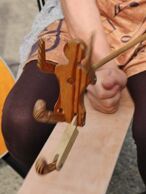 Paul’s loss was a huge blow to all of us, but as with everything else, we had to move on. My children were devastated, especially my youngest who was sixteen years old. He was closer to his dad than to anyone else. I wasn’t able to fill those shoes and didn’t know how to help him through it, though I tried. I offered grief counseling, which he refused, and tried to get other male friends and family to step in for support. In spite of my efforts, he sank deeper and deeper into drugs and depression. He rarely came out of his room, and when he did, he was surly and curt. We no longer hung out the way we once did. Although I knew that some of that was his age, I worried, nonetheless. Then, he found his first love, and I started to be relieved. Maybe this was just what he needed to help him through this hard time. I continued on with my music, getting gigs where I could and stretching out into new instruments and new opportunities. I’m not sure I would ever have played other instruments if not for Dick Kavanaugh. He was the one who first handed me a mandolin and asked me to play it and was always bringing new instruments into the house. We had fiddles, mandolins, banjos, ukuleles, recorders, tin whistles and flutes of all kinds, lots of guitars and more. He told me it was his retirement plan. He would fix them up and resell them when he didn’t want to work any longer. Then one day, he brought home an instrument I’d never seen before. It was a mountain dulcimer. I was amazed to discover that it was a traditional American instrument. How could I not know about this instrument? That’s when I realized that we were not taught American culture in school. I already knew that we were kept ignorant of Native American culture and of much historical truth, being given a very sanitized version of history, but this was Southern Appalachian. Why wasn’t this taught in school? I resolved to learn to play it and equally resolved to teach children about our traditional American musical culture. I started bringing a limberjack to all of my children’s shows and to schools and libraries. I already knew about the limberjack from my childhood. They are also popular among French Canadians, which was my dad’s heritage, and he carved his own which he called a “Dancing Dan.” They’re a wooden puppet with hinged limbs, often at the shoulders, elbows, hips and knees. They’re attached to a stick coming horizontally out of their back. There is a thin pine board that you sit on and rest the limberjack’s feet on the end. As you sing your song, you hit the board with your hand or fist in time to the music, and the limberjack keeps the beat with his feet as his arms and legs flail about in rhythm to the music. It’s always a big hit with folks of all ages. Once I learned to play the dulcimer well enough, I brought that as well, always explaining that it is a traditional instrument. It makes me feel sad that we live in this country, growing up not knowing about our rich traditions. I worked hard at learning the dulcimer. I went to Old Time jams, determined to know more about that music. It’s very hypnotic and just carries you away. I found I could play the same tune for hours and not get bored because it took me to another time and place. However, I’ve never been consistent about practicing and as with everything else, I got lazy and mostly stuck to playing chords. I’ve always looked at my string instruments as backup for my voice. Voice has always been my main instrument and takes precedence over everything else. Unfortunately, that attitude caused me to neglect the other instruments. However, I soon fell in love with the dulcimer. I took a couple of group lessons through the Old Songs organization and a couple of private lessons as well. I bought dulcimer books and went to a dulcimer festival where I heard Sam Edelston play rock and roll on the dulcimer. I was hooked. I never stopped loving rock music. I had just put it on a back burner for a while as I dove into this other world of folk and traditional music. That music is what drove me to learn how to play better and introduced me to a variety of instruments and genres. It was by backing up Old Time and Irish fiddle tunes when I first picked up the guitar that made me learn to play it so quickly. The chord changes were fast, and I learned to recognize the patterns more easily. But now, I was looking at my latest instrument in a different light. The dulcimer is a diatonic instrument, which means that it is tuned to a scale without all the extra notes in between. It’s just do-re-me-fa-sol-la-ti-do. It also only has three strings with two of them usually tuned the same. That makes it a great instrument for beginners. It’s hard to play a wrong note. Many dulcimers have one extra fret, giving its players one note on each of the strings that is not in the scale. I soon learned that I could have other extra frets put in, so I had a 1 ½ fret installed That one more extra fret opened up a whole new world of songs for me. My dulcimer is tuned to D-A-D. Now I had easy access to C natural and F natural both of which are not in the D scale. It seems like a trivial thing to most people, but those two extra notes made a huge difference in what I could play. Soon I was learning how to play chords without the missing notes. If I was playing with someone else, as long as I played some of the notes in the chord, they could provide the notes I didn’t have. As I said earlier, I am a lazy musician, often taking the easy way. One day, after a gig, someone told me that something I had played reminded them of “Norwegian Wood” by the Beatles. I went home and tried to play it by ear. With that one extra fret I’d had added, I found it. I also realized that I wasn’t just playing chords. I was playing the melody. It made me see that there was a lot more to my playing than I had previously allowed myself, and I was newly inspired. I soon learned “Can’t Find My Way Home” then “Wish You Were Here.” For the first time, I understood this instrument in a way I hadn’t with my others. I could play it instinctively. It soon became my favorite, but I still felt limited in what I could play. A few years ago, I went to the used instrument sale at the Old Songs Festival in Altamont, New York. I’ve been going to that festival for many years, have been a volunteer and crew chief, and have bought a few instruments, including a 1935 Martin mandolin at that sale. That year, I saw a dulcimer whose sound holes were in the shape of mountains. It had a larger body than the ones I already had and a beautiful deep tone. As I sat there trying it out, a woman came up and told me that she was the builder of this beautiful instrument. I explained that I loved everything about it and, as usual at this sale, the price was right, but I was used to having the extra 1 ½ fret. She offered to put in the extra fret for me, set up the instrument, restring it and send it to me for the price of shipping. How could I refuse? She told me to show her exactly where I wanted the fret so there would be no confusion. Well, I am often confused and ended up showing her the wrong place. I showed her the 0 ½ placement. Imagine my surprise when I got it back and realized my mistake. I started experimenting with that extra fret, determined to figure it out but missing the 1 ½. I took the instrument to a luthier friend who put the right one in. Then I brought it to another dulcimer festival and asked my friend Sam to show me how to use it effectively. He showed me how to play “Lucy In The Sky With Diamonds” using that 0 ½ fret but cautioning me that it was quite difficult with some big stretches that he thought might be too far for me. I assured him that, luckily, I have very large hands and was determined to learn it. Then, the pandemic hit and shut everything down, including all of my work. I began doing virtual classes but had lost all of my other work and had lots of time on my hands. Within a month I had learned the song and had honed my skills on the dulcimer. My current partner suggested doing a video with all of the cellophane flowers, newspaper taxis, etc. After the video was done, I continued to work hard on the dulcimer. It was the first time since I was a child that I had so much time to practice anything. I relished the opportunity. It is still my favorite instrument and, instead of looking for the next new instrument to take up, I’m content to focus on the ones I have, especially the dulcimer. Interestingly, as much as I love the mountain dulcimer, I still do most of my songwriting on the guitar and piano. I’m not sure why, but I’m not sure it matters. In writing these memoirs, I’ve had trouble with the timeline. Now, I have to backtrack a few years to 2007. I met Paul Cavanaugh when I was twenty and he was eighteen. We hitchhiked across the country only a year later, had a baby then another and a third quite a few years later. We grew up together and separately as we struggled to survive and raise our family, and we made beautiful music together. After a tumultuous twenty years, we went our separate ways into new lives while remaining the best of friends. I often wondered if it would have been better to have been friends rather than partners, but then we would never have had our children who we both loved and cherished. Paul was the historian in our relationship. He always remembered every detail, names of people and places, dates and more. After we split up, he ended up with a woman he had had a crush on while we were still together, and I met Dick Kavanaugh. We never stopped loving each other but had to move on to our next phase. On December 15th, 2006, Paul was diagnosed with lung cancer. He had been suffering from COPD (chronic obstructive pulmonary disease), an incurable disease that makes breathing difficult. He had been a smoker since he was eleven and had grown up in Pittsburgh, Pennsylvania at a time when pollution was uncontrolled. Both of his parents had cancer as well, and his dad had died from lung cancer. Although Paul finally gave up smoking cigarettes, he never stopped smoking pot. I remember him arriving at one of my parties, gasping for breath but walking to the back of the large yard, stopping frequently to rest, until he finally made it to the smoking section where he spent most of his time. I guess we all knew that it was inevitable that he would get cancer someday, but in the five years that he suffered from COPD, his doctor never ordered another x-ray. By the time he got his diagnosis, it was a stage four cancer. He was still living in the trailer we had purchased when his mother died, though it was in shambles now. There was mold growing inside, the floor was rotting, there was a pile of garbage in the front yard that never made it to the dump, and the front porch that I had built with my dad was falling off. He asked me to take him to his appointment with the oncologist. He could barely get around anymore, so I asked our older son to go with me to help me get him out of the trailer and into the car. That day, the oncologist predicted that he had maybe three to six months to live without any therapy and possibly a year with radiation and chemotherapy. He decided to forgo any therapy and enjoy a better quality of life while he still could. We brought him back home and got a call later that night that he was in the hospital in the ICU unit hooked up to a ventilator. We rushed to the hospital, where I noticed how agitated he was, trying to pull out the ventilator until they had to strap him down. While we were there, although he was unconscious, he was calm and fairly relaxed. I started reaching out to my community immediately and set up friends to sit watch over him, hoping that he would recover. I was so touched by the number of people who came. Paul had people there twenty-four hours a day. After a few days, he regained consciousness and was soon released. Meanwhile, his partner told me that she was not able to care for him anymore in the condition he was in. It all broke my heart, and I wasn’t sure what to do now. I still loved him more than anyone else. He was one of my oldest friends. I spoke to my children and to Dick, and we decided that I would not take him back home but would let him stay at my apartment until our daughter could set up a space for him there. I felt so lucky to have a partner who was willing to house my dying ex-husband for those few days. Paul was not happy when I picked him up from the hospital and refused to take him home. He didn’t know that his partner had handed his care over to us, and I didn’t tell him. I decided to let him think I was being bossy and bullying him into this new arrangement. Whenever we asked him if he wanted to travel anywhere during this final time, he always replied that he was satisfied. “I’ve had a good run,” he would say. I wanted our children to have the opportunity to ask him questions, hear his stories and just enjoy their dad. But Paul was ready to go and mostly wanted to be left alone. He was still angry from his early trauma and as the end came near, her started to take it out on the people close to him. It was a very difficult and stressful time for everyone. Paul’s partner came once a day for a short visit which usually soothed him a bit. Our older son, Justin, was out of work and stayed at Jes’ house to care for Paul. He was the one child who had struggled the most in their relationship, and he was the one who stepped up when needed. I did the same thing later on with my mother who I never felt liked me. Jes was working from home, trying to maintain her work schedule while her dad was dying in her son’s bedroom. My grandson mostly stayed with his dad during that time. Our youngest son, who had the closest relationship with his dad, was sixteen at the time. I visited every day and brought our son and granddaughter who were both living with me. Many friends came by to visit with Paul, and his siblings traveled to see him. We all thought we would have a few months, but Paul died exactly a month after his initial diagnosis on January 15th, 2007. I remember that day so clearly. It was icy that morning, and I almost didn’t go because of the road conditions. As I was driving along, I suddenly started crying and said aloud, “It’s good day to die, Paul.” When I arrived, he had just passed. His closest sister had also just arrived for the second time. We had called and told her that we thought it was going to be any day, but she just missed him as did I. None of us thought to look at the clock to mark the time of his passing but it was not long after eleven am. Paul loved numbers and would even recite them in his sleep. He marked special times with parties such as his 0-1-2-3-4-5-6-7-8-9 party which was on June 7th, 1989, where we all had to whoop and holler at 01:23:45 am and pm, and his 1-2-3-4-5-6-7-8-9-0 party which was on July 8th, 1990, where we whooped and hollered at 12:34:56 am and pm. He was born on November 11th, 1955, at 11:11 am, so we decided that he must have died at 11:11 am. It was close enough for us. Only a few days before hospice had finally come and brought a hospital bed and supplies to make his parting easier. I was angry for a long time that it had taken them so long to come. We had been asking for two weeks, knowing that the end was near. I was also angry at his doctor for not staying on top of his condition, for not finding the cancer before it had gotten so bad. I felt robbed of more time with him for my children and for myself. We never really had closure. All of his stories were lost, except for the ones I could remember and retell. My best friend, the father of my children and our historian was gone too soon, and everyone looked to me to take charge. I had never had to deal with a death as an adult, but I figured it out. We called hospice who sent someone over immediately and helped us arrange for his body to be taken away. Then I helped our children find a funeral parlor and arrange his cremation. I navigated Social Security and other bureaucracies and managed to have “road scholar” included on his death certificate. With the help of many friends, we threw a wonderful celebration of his life. He always said that he wanted to have a big party with music and food when he passed on. We showed videos and had recorded music of our band as well as live music by many friends. Lots of people brought food for a potluck, and thankfully, one of our friends told a couple of bad jokes. Lots of people showed up, even my parents and siblings, none of whom ever liked Paul, came to pay their respects. I think he would have been pleased at how it all turned out. The music community was supportive as well. Greg Haymes wrote a wonderful piece in the Metroland about his passing and promoted a fundraising concert that would be held at the Lark Tavern. One of the many reasons I had eventually obtained a legal divorce was to remove each of us from financial responsibility for the other. Paul had not paid his property taxes for a few years and was facing repossession of his home. We didn’t know this until after he passed. He left our children nothing but debt, and the community wanted to help out. Two amazing people who we have since lost arranged and promoted this amazing event, Greg and Caroline Mother Judge. There is still not a day that goes by that I don’t think of Paul and miss him. I miss our shared music, our incredible adventures and most of all our love and friendship. Although, I have loved since then and am now living happily and very much in love with my third life partner, Paul was my first true love, and I will always cherish our time together in spite of the hardships. We truly did make beautiful music together in more ways than one. This was his masterpiece that took years for him to compose.
Suite: Visions of an Airplane |
Archives
January 2024
Categories
All
|


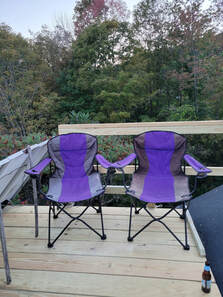
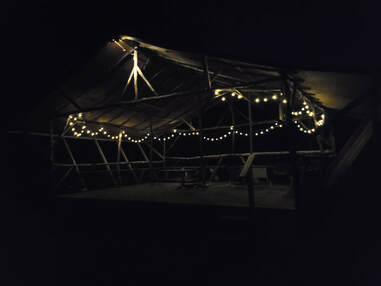

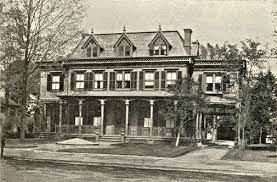
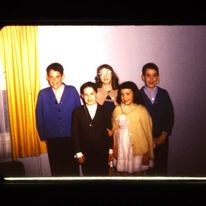
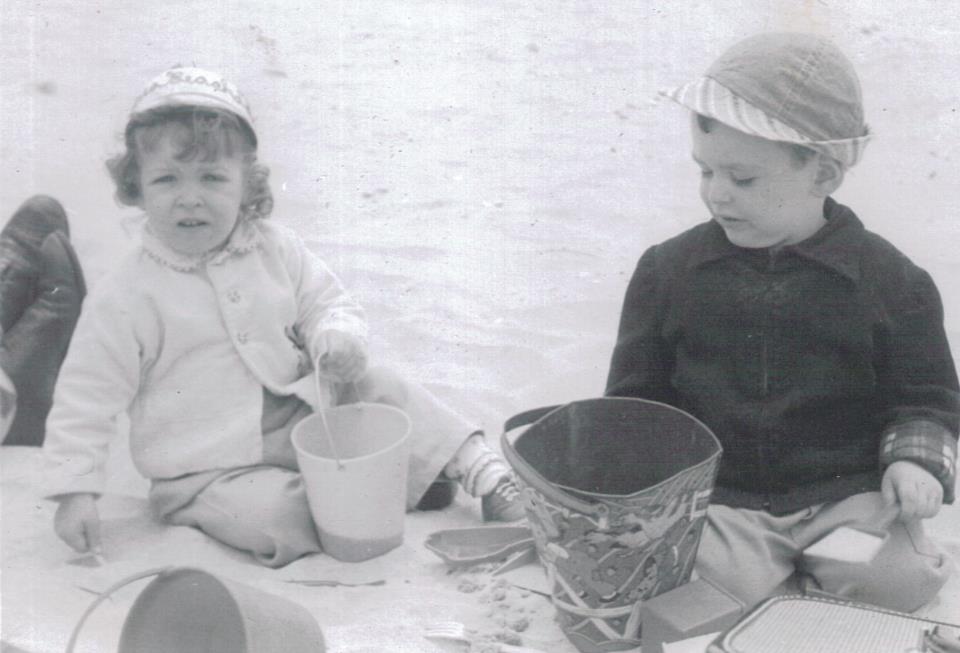
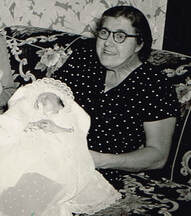
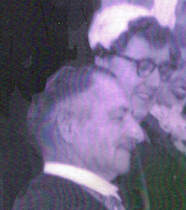
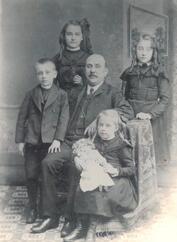
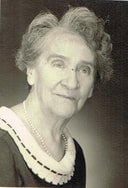
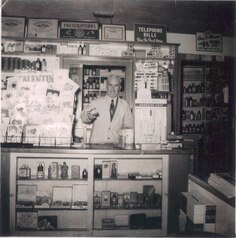
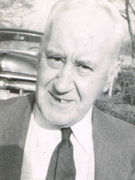
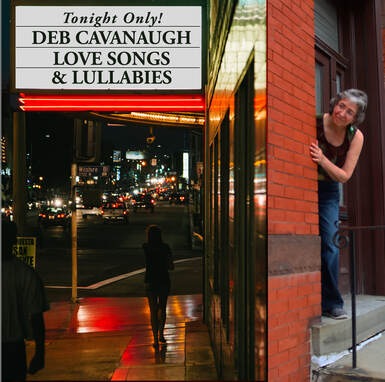
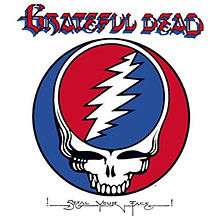

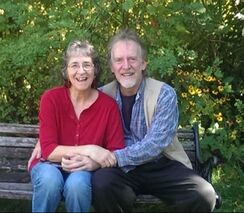
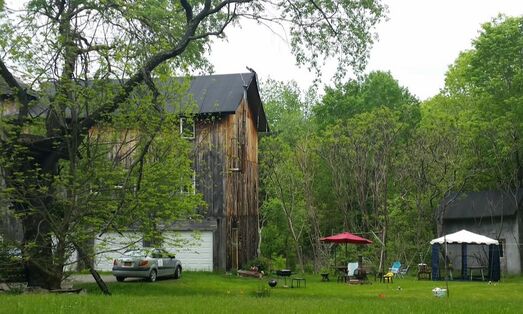
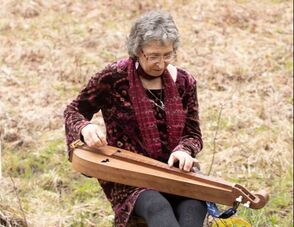
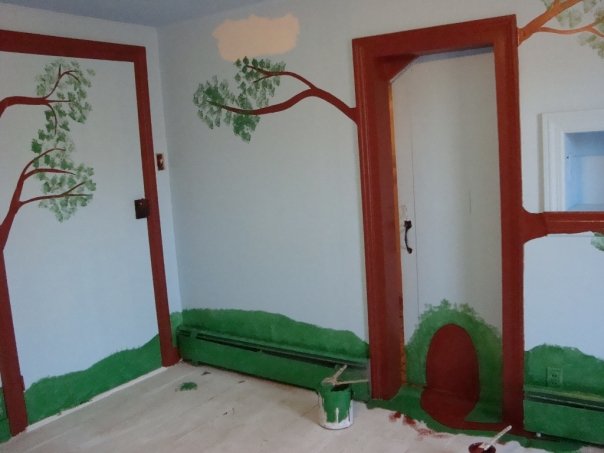

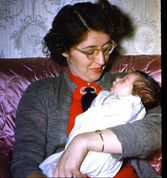
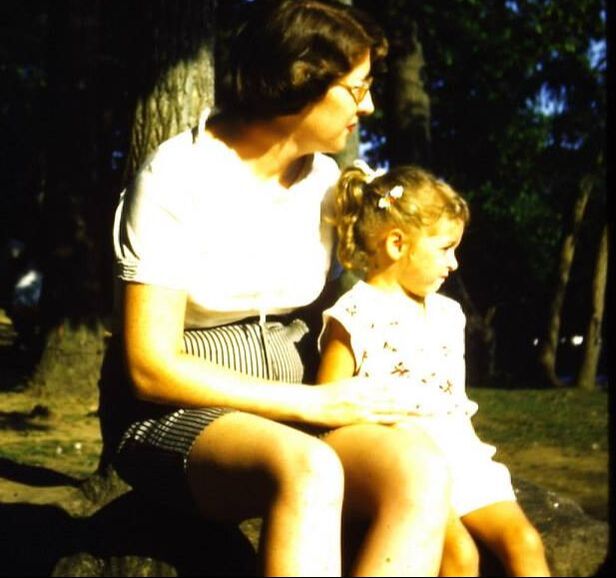
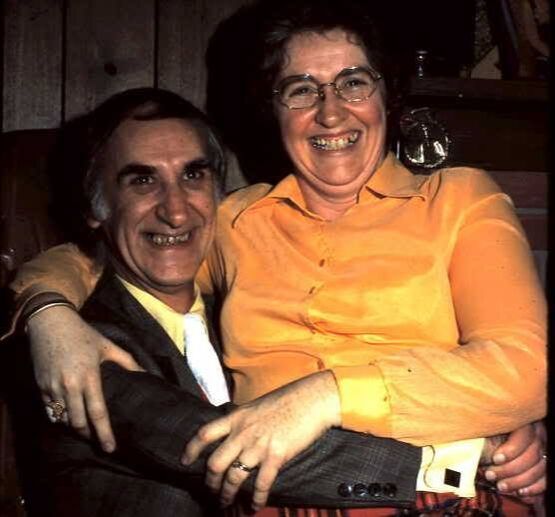
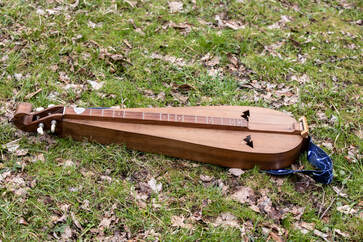
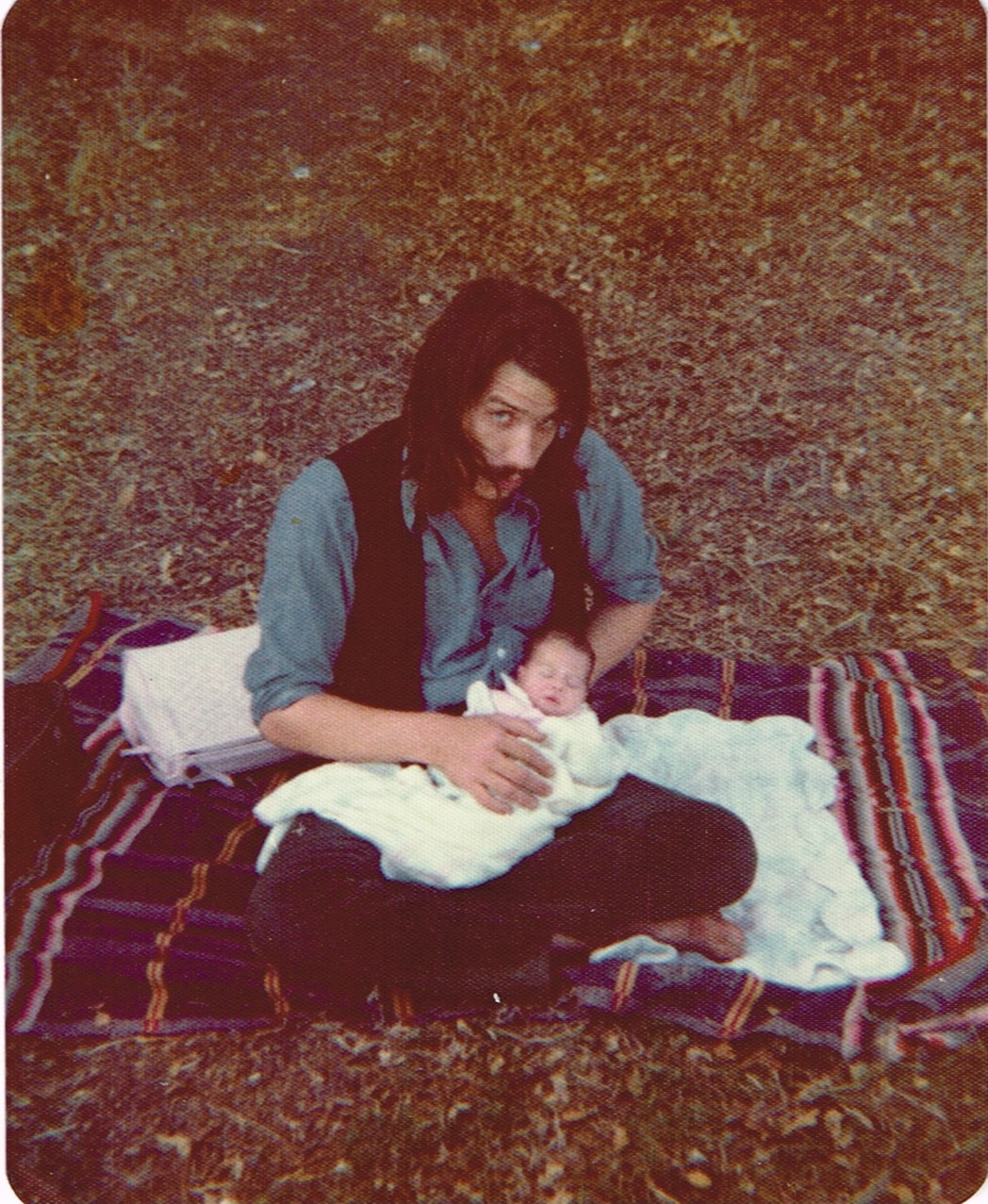
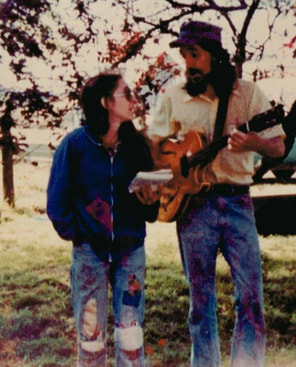
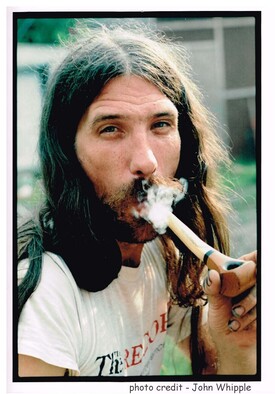
 RSS Feed
RSS Feed